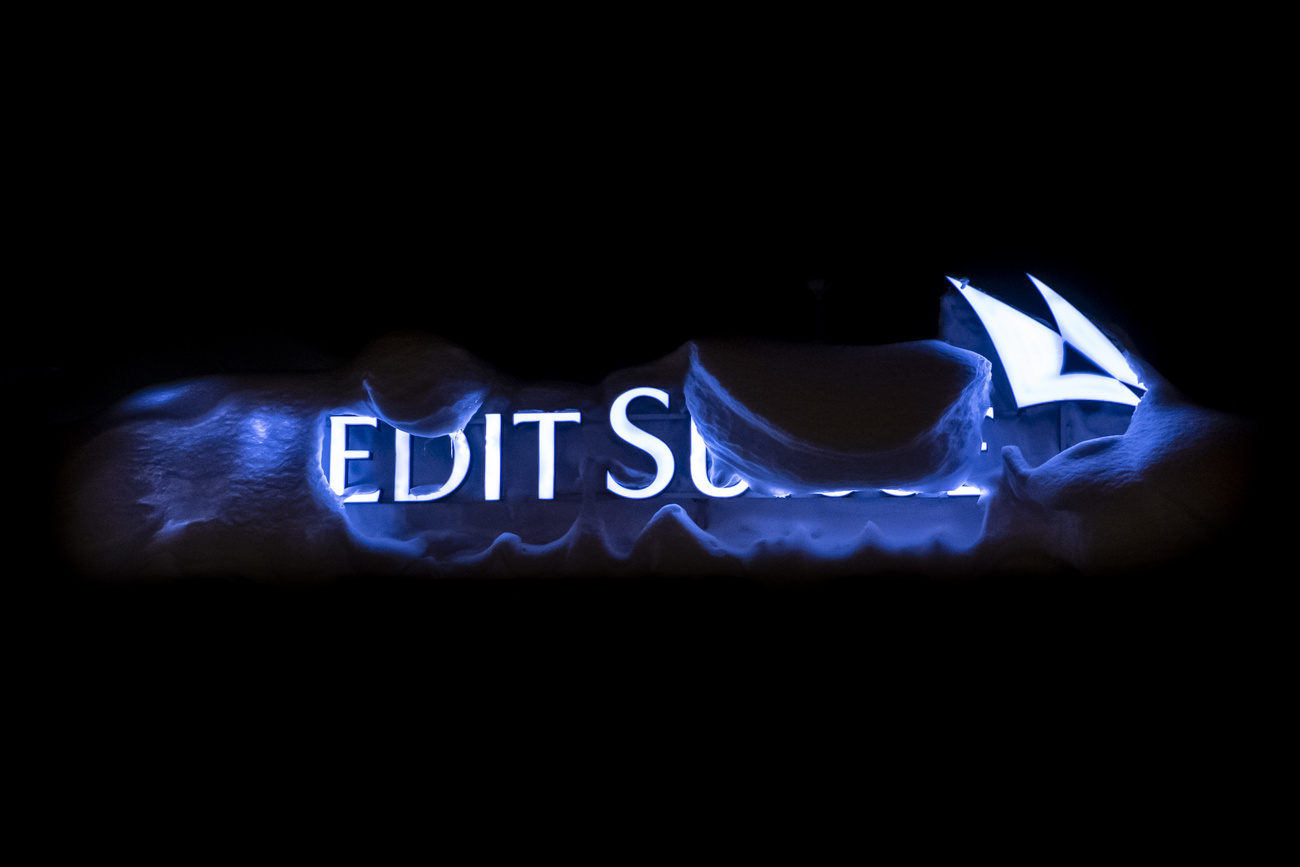Ranking: Swiss public sector shows corruption and lobbying vulnerability

Switzerland ranked seventh for a second year in a row in Transparency International’s Corruption Perception Index, but its overall score marks a historic low for the country. Nepotism and opaque political lobbying stand out among the Swiss public sector’s trouble spots, according to the international NGO’s Swiss chapter.
“Compared with other countries, Switzerland is performing well,” Martin Hilti, director of Transparency Switzerland, told SWI swissinfo.ch. “It figures among the top ten countries. That’s good news. But it is very important to contextualise this result. We have our own corruption problems in Switzerland.”
The CPI ranking measures perceived levels of public sector corruption around the globe. The international NGO noted that Switzerland is among the European nations hitting historic low scores on a scale of zero (highly corrupt) to 100 (very clean). In the 2022 edition, Switzerland scored 82 points compared to 84 last year. The trend is one of very gradual decline. Switzerland scored 86 in 2016.
Denmark topped the ranking. Finland and New Zealand tied for second place. The conflict-stricken nations of South Sudan, Syria and Somalia fared worst, getting bottom marks yet again. Overall, two-thirds of the 180 countries and territories surveyed did not even reach the 50-point mark out of the maximum 100. The higher the score – which is based on the assessment of experts and businesspeople – the less vulnerable a county is to corruption.
“Even countries that hold the top spots on the CPI have stagnated, as they fail to address shortcomings in political integrity frameworks,” warned Transparency International in its Europe press release. Switzerland “is showing signs of decline amidst concerns over weak integrity and lobbying regulations.”
‘Widespread nepotism’
Hilti sees several reasons why Switzerland is lagging in the fight against corruption in the public sector. To reverse the trend, it is necessary for the country to put an end to the “widespread” practice of nepotism, to improve the way conflicts of interest are dealt with, and to better regulate lobbying, he says.
“We are lacking transparency – for the general public to know which lobbyist is lobbying for what interests, when, with whom,” he told SWI. “We are lacking regulation guaranteeing that specific interests have more or less equal access to politics.”
Switzerland’s clean image has been tarnished by corruption scandals that grabbed headlines and the attention of the courts. These include the legal battles of Geneva politician Pierre Maudet over the acceptance of undue financial perks linked to a 2015 Abu Dhabi trip, and an IT contracts scandal at the State Secretariat for Economic Affairs (SECO). The lucrative lobbying mandates of newly elected cabinet minister Albert Rösti also raised eyebrows.
Hitli also calls for greater transparency in the financing of political life at the cantonal and communal level, noting that most cantons and communes have yet to legislate in this area. With Switzerland being a small country, tightknit communities sometimes fail to recognise conflicts of interest, such as when local politicians get ski passes at a preferential rate.
And he blames problematic activities by lawyers – such as setting up shell and offshore companies – for Switzerland’s failure to close loopholes and carry out a more robust revision of its anti-money laundering laws. The legal profession is well-represented among Swiss parliamentarians.
“We have hard work to do in Switzerland,” he stresses. “We can’t lie back and say ok, everything is fine.”
Swiss banks questioned
Speaking at a panel on corruption at the World Economic Forum (WEF) this month, Swiss State Secretary Livia Leu painted a different picture. She took pride in Switzerland’s consistent top ten ranking and highlighted the country’s international efforts to combat corruption domestically and globally, including implementing Russian sanctions, saying Swiss banks “overcomply” on that front.
“James Bond villains no longer have bank accounts in Switzerland because over the past decades we have built a robust system for combatting money-laundering and terrorist financing,” she said. “We believe that a healthy financial centre is important for the Swiss economy and so is financial integrity. The financial sector accounts for approximately 10% of our GDP.”
Transparency International noted that even though banks are “generally better regulated”, they prominently feature in almost every major money laundering exposé. It pointed to questionable practices at Swiss bank Credit Suisse – accused in the Suisse Secrets investigation of funneling public funds out of Venezuela and having dubious clients such as a tycoon that backed the Libya uprising in 2021.
“Swiss authorities need to do more to promptly identify and sanction failings in the banking sector,” the organisation said. “What’s more, banking secrecy continues to hinder Swiss journalists from investigating and reporting on cases of corruption and money laundering involving Swiss banks.”

In compliance with the JTI standards
More: SWI swissinfo.ch certified by the Journalism Trust Initiative











You can find an overview of ongoing debates with our journalists here . Please join us!
If you want to start a conversation about a topic raised in this article or want to report factual errors, email us at english@swissinfo.ch.